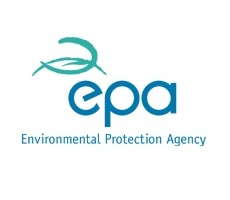- The EPA welcomes the increase in composting and anaerobic digestion of biodegradable waste – the quantity recycled increased by 15 percent between 2015 and 2016.
- Kitchen & canteen food waste and park & garden waste accounted for most of the waste accepted for treatment in 2016 (65 percent).
- Composting rather than anaerobic digestion was the dominant treatment type.
The EPA has recently released data and information on composting and anaerobic digestion in Ireland for 2016. The data updates the National Waste Statistics web resource, launched by the EPA in recent months.
Commenting on the figures, Stephen Treacy, EPA, said:
“The EPA welcomes the increase in the amount of biodegradable waste being accepted for recycling at composting and anaerobic digestion plants. Ireland’s national waste management policy “A Resource Opportunity” aims to make the most of opportunities to recover resources from waste in line with the European Commission’s Circular Economy Strategy. Segregating and separately collecting biodegradable wastes such as food and garden waste means that they can be recycled and reduces the amount disposed to landfill.”
EPA figures show that the amount of waste accepted at commercial composting and anaerobic digestion plants increased by 15 percent between 2015 and 2016 (from 308,000 tonnes to 353,000 tonnes). Composting was the dominant treatment activity (79 percent of tonnage accepted).
Waste collectors are required to provide brown bins to ensure that waste food is collected separately. In 2016, 174,000 tonnes of brown bin waste was accepted at composting and anaerobic digestion facilities for treatment, an increase of 22 percent on 2015. Twelve percent more households had an organic bin in 2016 compared to 2015 and this is a positive outcome from the implementation of the 2013 household food waste regulations. The amount of brown bin waste being exported to Northern Ireland for recovery rose again in 2016, by over 80 percent.
Stephen Treacy concluded by explaining the co-benefits of anaerobic digestion,
“Anaerobic digestion extracts additional value from organic waste due to the possibility of using the captured biogas. This not only mitigates the effect on climate change but the biogas can displace fossil fuel use, increasing the amount of renewables being used in Ireland.”
The 2016 information on Composting and Anaerobic Digestion is now available on the EPA website.





